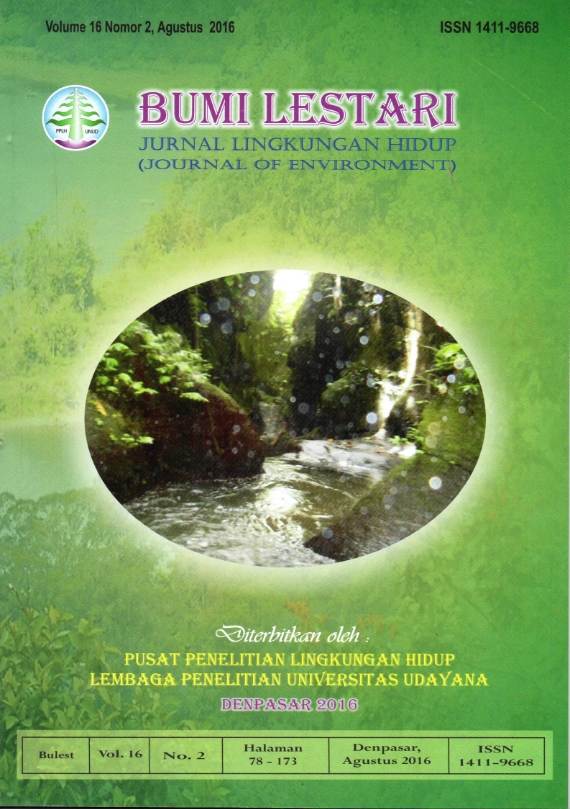In Vitro And Ex Vitro Propagation Of A Wild-Extinct Fern Lygodium Circinnatum (Burn.F) Sw. Grown In Bali
Abstract
Research concerning of propagation of a wild-extinct fern Lygodium circinnatum had been done at Faculty of Agriculture, Udayana University, Denpasar Bali Indonesia. At some places in Indonesia, as well as Bali, this species is used as materials for making handicraft. In Bali, the species grows wildly in the forest and it is almost extinct due to over gathering. This study aimed to find out method for domestication of L. circinnatum, therefore this wild species can be cultivated, provided materials for making handicraft and might solve the problem of extinction. Various media for growing spores of L. circinnatum in vitro and ex vitro were trialed. In conclusion, full strength of MS media without sugar was the most appropriate media for growth and development of spores of L. circinnatum in vitro. While for ex vitro, the appropriate media were paddy silt-soil and decomposed leaf either with or without addition of foliar fertilizer. However, we suggested ex-vitro cultivation was more appropriate, the technique was much easier and the spores grew faster compared to those of in-vitro.Downloads
Keywords
Authors who publish with this journal agree to the following terms:
- All articles published by Bumi Lestari Journal of Environment and Environmental Reseach Center Udayana University are made available under an open access license worldwide immediately. This means everyone has free and unlimited access to the full-text of all articles published in Bumi Lestari Journal of Environment, and everyone is free to re-use the published material given proper accreditation/citation of the original publication. Open access publication is supported by authors' institutes or research funding agency by payment of a comparatively article processing charge for accepted articles (See Author Fees). Bumi Lestari Journal of Environment and Environmental Reseach Center Udayana University publish articles under the Creative Commons Attribution License.
- Authors are able to enter into separate, additional contractual arrangements for the non-exclusive distribution of the journal's published version of the work (e.g., post it to an institutional repository or publish it in a book), with an acknowledgement of its initial publication in this journal.
- Authors are permitted and encouraged to post their work online (e.g., in institutional repositories or on their website) prior to and during the submission process, as it can lead to productive exchanges, as well as earlier and greater citation of published work (See The Effect of Open Access).





